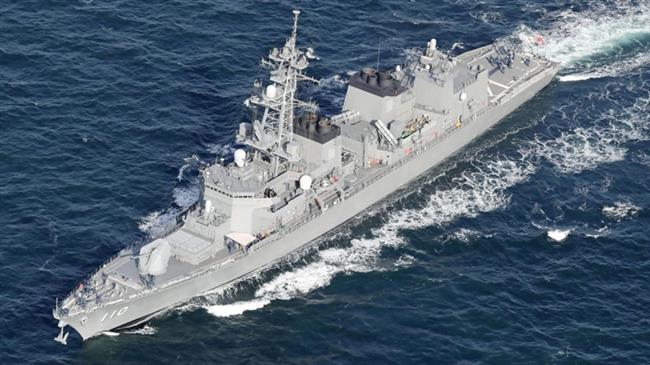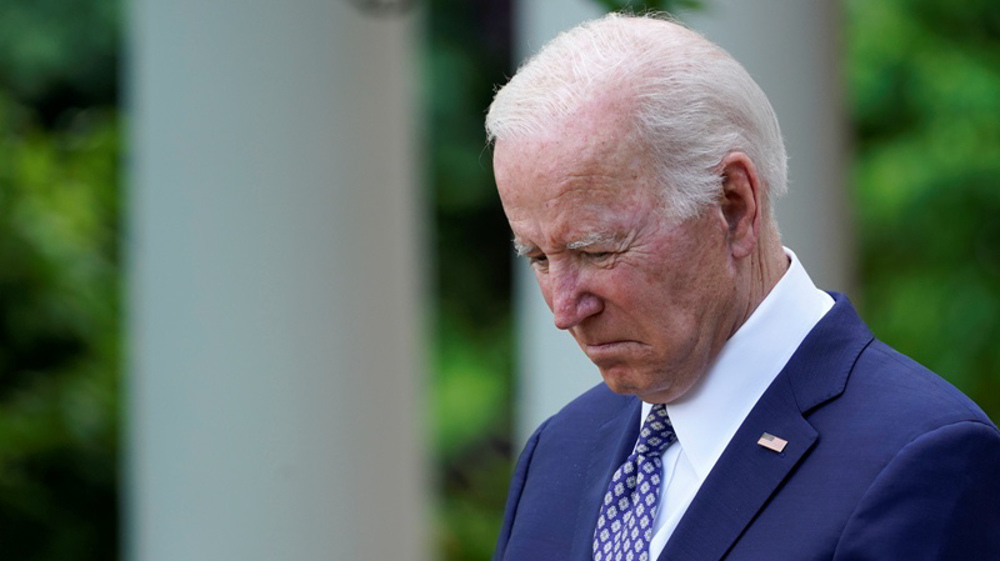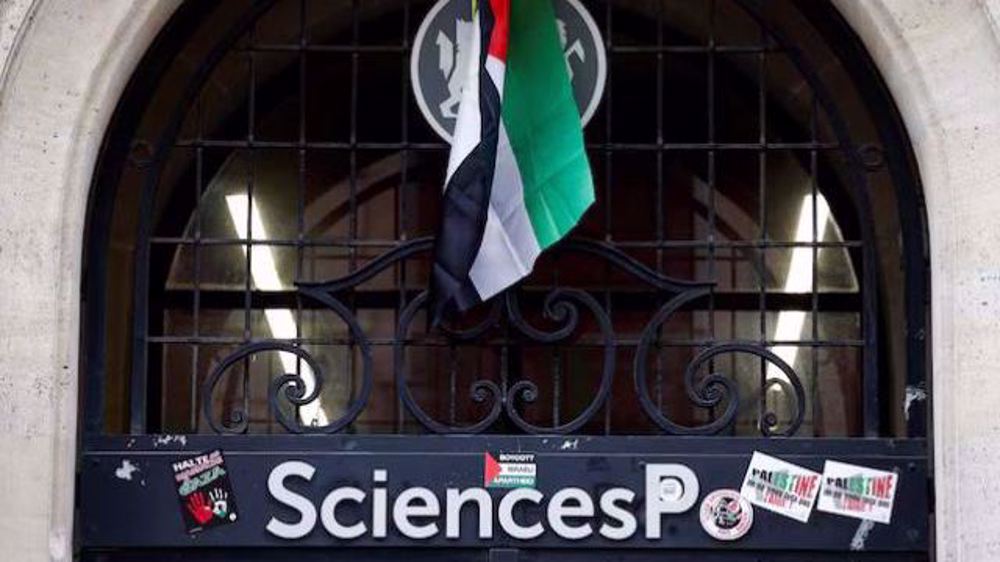Japanese destroyer departs for Middle East on intel-gathering mission
Japan has dispatched a destroyer to the Middle East on an intelligence-gathering mission, saying it is aimed at ensuring oil shipments from the region.
The helicopter destroyer Takanami on Sunday departed Yokosuka naval base near Tokyo for the Gulf of Oman, through which flows some 90 percent of Japan's oil.
Japanese Prime Minister Shinzo Abe saw off the destroyer at the Maritime Self-Defense Force’s (MSDF) base in a departure ceremony.
Addressing the event, Abe said Takanami’s mission is critical to the Japanese people's livelihood as about 90 percent of the crude oil Japan uses is transported through the northern part of the Arabian Sea and the Gulf of Oman.
“Thousands of Japanese ships ply those waters every year including vessels carrying nine tenths of our oil. It is Japan's lifeline," he said.
“The intelligence-gathering mission bears very significant meaning that is directly linked to people’s lives,” he added.
However, many analysts believe the Japanese government had to make the decision under the US pressure, but chose not to deploy the vessel to the Persian Gulf in a gesture to Iran.
According to Japanese officials, the destroyer and its 200-member crew is slated to reach its destination later this month.
The crew will reportedly operate with two P-3C maritime patrol aircraft to guard ships heading for Japanese ports.
The 4,650-tonne Takanami, however, will not join a US-led naval mission-- purportedly aimed at protecting shipping lanes in the Persian Gulf-- or other naval groups in the region.
In addition to the Gulf of Oman, the warship will patrol the northern Arabian Sea and the Gulf of Aden, but will not enter the Strait of Hormuz, a strategically important choke point between Iran and the Arabian peninsula.
Authorities in Tokyo have reportedly declared their preparedness to use force in protecting the passage of Japanese cargo ships in the Middle East - a decision that violates the nation's constitution.
In January, Japan sent two Lockheed P-3 Orion surveillance aircraft for a year-long mission covering the Gulf of Oman, the northern part of the Arabian Sea, and the Gulf of Aden, while omitting the Persian Gulf and the Strait of Hormuz.
Abe has been trying to establish himself as a leader in the international arena, persistently leaning towards the administration in Washington.
US President Donald Trump announced after a visit to Japan in May last year that he would hold off on thorny trade negotiations with the country until after the Japanese upper house election.
The US supports Abe's push to renounce Japan's pacifist constitution because it paves the way for the sale of American weapons to Tokyo.
Under Abe, Japan has already announced that it will spend a record 242 billion dollars on military equipment over the next five years, 6.4 percent higher than the previous five-year plan.
In October, Japan said it planned to send a naval force to Middle East waters but declined to join any US coalition.
Japan’s Chief Cabinet Secretary Yoshihide Suga said at the time that the Gulf of Oman, which lies on the northern edge of the Arabian Sea, or the Bab el-Mandeb Strait that connects the Red Sea and the Gulf of Aden, had been picked as potential locations.
Later, Iran expressed its opposition to Japan's plan to dispatch a naval group to the Middle East.
Despite being a military ally of the US, Japan has traditionally maintained friendly relations with Iran as a major source of energy. In 2017, Iran supplied 5.2 percent of Japan’s crude oil imports.
Back in June, Abe traveled to Iran on a first visit by a Japanese premier to Tehran in more than 40 years, with a plan to help ease tensions between the Islamic Republic and the United States.
Iran's oil exports have been disrupted by unilateral American sanctions on the Islamic Republic.
Tensions have escalated since Trump’s decision last year to withdraw from the Joint Comprehensive Plan of Action (JCPOA), as the international nuclear agreement with Iran is officially called.
AIPAC censures Biden for pausing arms shipment to Israel
Fuel running out at Gaza hospitals amid Israeli assault on Rafah: WHO
Hezbollah says it hit Israeli targets in ‘multipronged attack’
VIDEO | US aircraft carrier returns to Red Sea as Yemen warns Israel over Rafah
Israel lost Gaza war and refusal to sign truce deal will only hasten its annihilation
VIDEO | Another mass grave uncovered in Gaza, bodies ‘without heads’ found
Russia vows retaliation after UK’s expulsion of defense attaché
Israel keeps bombing Rafah as truce talks resume in Cairo













 This makes it easy to access the Press TV website
This makes it easy to access the Press TV website